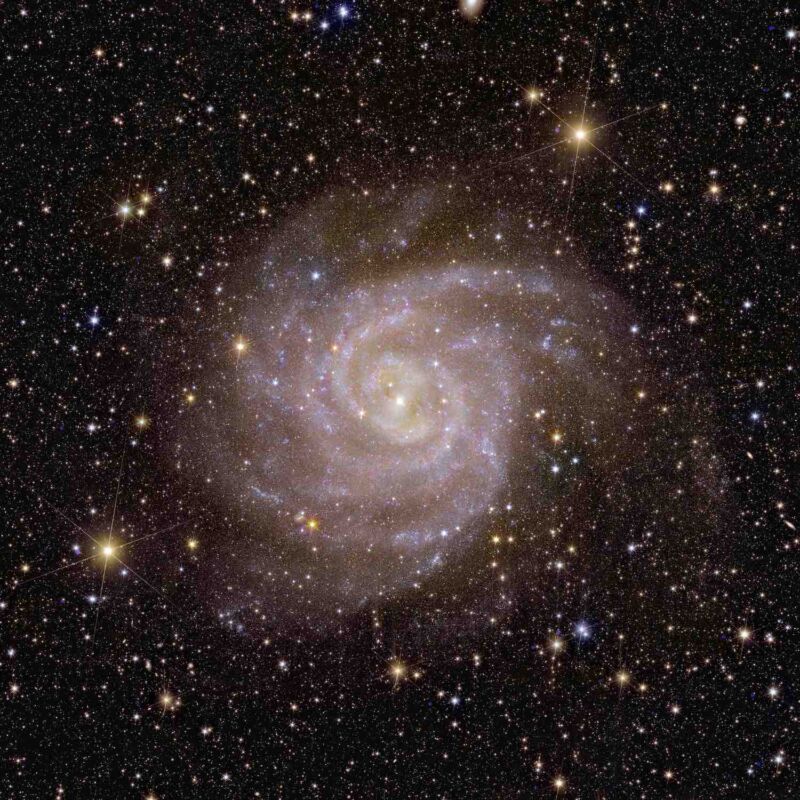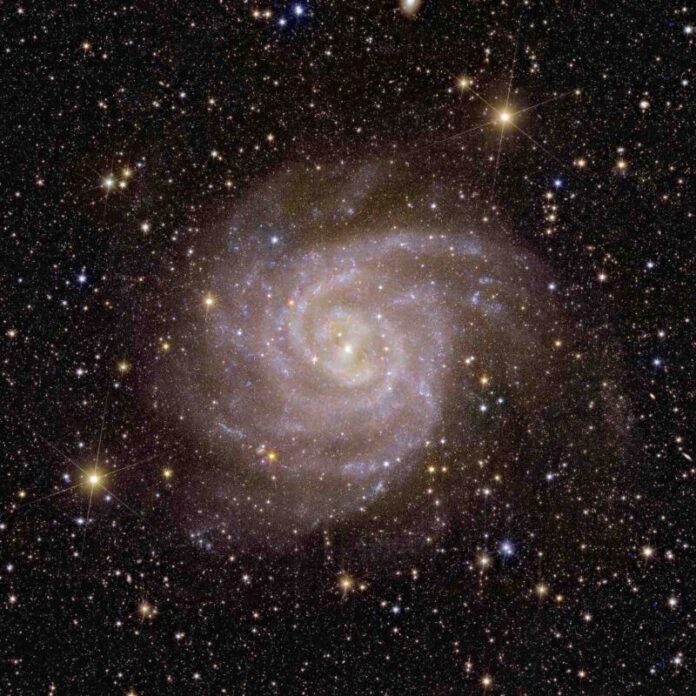
Enlarge / One of the first galaxies that Euclid observed is nicknamed the "Hidden Galaxy." This galaxy, also known as IC 342 or Caldwell 5, is difficult to observe because it lies behind the busy disk of our Milky Way. (credit: ESA/Euclid/Euclid Consortium/NASA, image processing by J.-C. Cuillandre (CEA Paris-Saclay), G. Anselmi)
The European Space Agency released the first five science images from the Euclid space telescope Tuesday, showing how the wide-angle observatory will survey familiar cosmic wonders like galaxies and stars to study the unseen dark energy and dark matter that dominate the Universe.
Stationed nearly a million miles (1.5 million kilometers) from Earth, Euclid will scan one-third of the sky over the next six years, collecting an estimated 1 million images of billions of galaxies. Scientists have developed sophisticated algorithms to analyze the data coming down from Euclid to measure the distances and shapes of each of these galaxies.
From that, scientists can infer how the influence of dark matter pulls on the galaxies, forming clusters and causing them to spin faster. Dark energy is the mysterious force that is driving the accelerated expansion of the Universe.
Read 14 remaining paragraphs | Comments
Ars Technica - All contentContinue reading/original-link]




